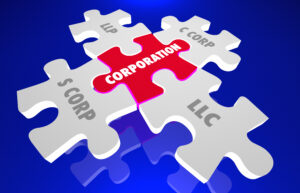Tax-Free Spinoffs Could Be Much Tougher Under Proposed New Rules
![business-tax-[Converted] business-tax-[Converted]](https://groco.com/wp-content/uploads/2021/02/business-tax-Converted.png)
Many U.S. companies take advantage of lower foreign taxes by creating tax-free spinoffs of their parent companies. It’s a great and legal way to lower their corporate tax bills. However, some lawmakers have long pressed for changes to these rules and it appears that changes could be coming.
The U.S. Treasury Department recently proposed some new rules that would make it more difficult for companies to create certain kinds for spinoffs. In order to avoid capital gains taxes on the transaction 5 percent of the amount of a spin-off must be an active trade or business.
The new proposed rules also aim to clear up the factors that determine when a spinoff cannot be used for distributing profits and earnings to shareholders. If the new rules pass, the transaction would be deemed a device if there was a large enough gap between the amount of the company that is made up of nonbusiness assets while the other company had a lot less.
At this point the new rules have only been proposed and they will not take effect unless the Treasury Department makes them official. Even at that time they still wouldn’t affect any transactions that were already planned before approval even if the transaction was finalized after.
http://www.wsj.com/articles/new-treasury-rules-would-make-it-harder-to-complete-tax-free-spinoffs-1468500481
Tax S-corporation
Saving Taxes with an S Corporation An S corporation election allows the shareholders to preserve the benefit of limited liability for the corporate form while at the same time being treated as partners for federal income tax purposes. Ever wondered why so many small businesses operate as an S corporation? Simple. An S corporation saves…
Sec1045 Partnerships
Sec1045 Partnerships This document contains final regulations relating to the application of section 1045 of the Internal Revenue Code (Code) to partnerships and their partners. These regulations provide rules regarding the deferral of gain on a partnership’s sale of qualified small business stock (QSB stock) and a partner’s sale of QSB stock distributed by a…
Sec179 Businessequipment
Updated: 11/12/10 Most new business equipment can be either depreciated over its useful life or expensed immediately under Internal Revenue Code Section 179. The maximum deduction is based on the following schedule for the date in which the tax year begins. Each 1040, whether Single or Joint, is limited to one maximum. 179 expenses passed…
Sec1244 Small Business Stock Sales
Sec1244 Small Business Stock Sales Section 1244 of the Internal Revenue Code, the small business stock provision, was enacted to allow shareholders of domestic small business corporations to deduct as ordinary losses, losses sustained when they dispose of their small business stock. In order to receive this beneficial treatment, the Code prescribes specific requirements for:…



